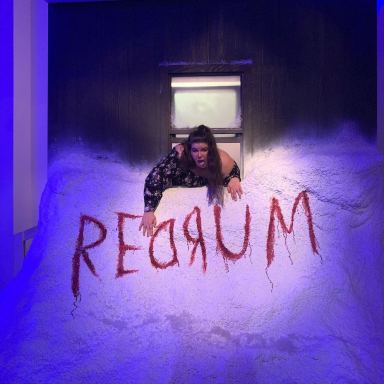It’s Canon That The Cult in ‘Midsommar’ Is White Supremacist, Here Are The Receipts
“As Hårga takes, so Hårga also gives.”
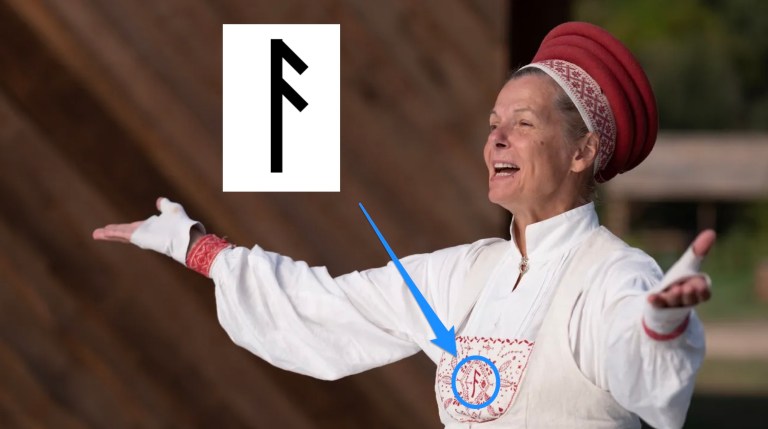
Midsommar (2019) is a psychological horror movie written and directed by Ari Aster. It follows Dani (Florence Pugh), a student who has recently lost her entire immediate family under shocking circumstances. She joins her (begrudging) boyfriend and his friends on a trip to Sweden to experience an isolated community’s midsummer festival. The community, known as the Hårga, welcomes the outsiders and introduce them to their unique traditions. As the number of visitors dwindle, Dani (and the audience) slowly begin to see the dark interior of the Hårga cult.
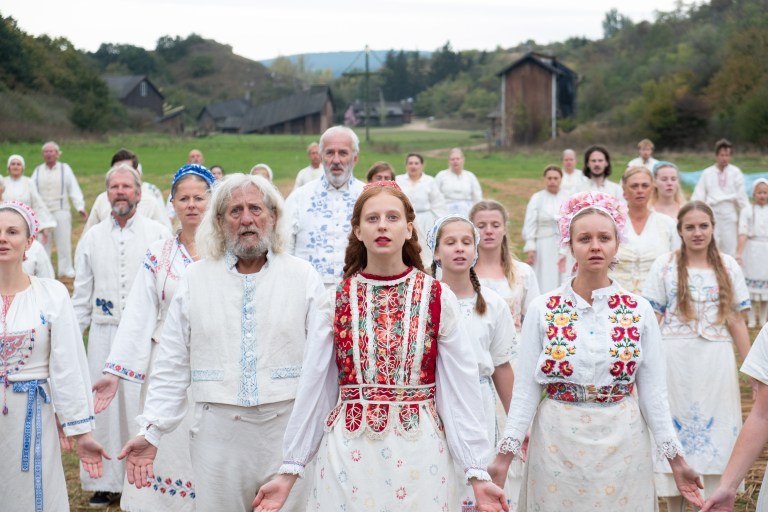
There are many fun and interesting Easter eggs in Midsommar, but some that are not widely discussed relate to the fact that Aster portrays the Hårga as white supremacists. The reason for doing so may simply be a nod to real life right-wing populism in Nordic culture’s largely homogenous populations, to confirm that the ending of Midsommar is not a feminist fairytale, or just to make the Hårga even more sinister. So, how do we know the Hårga in Midsommar are white supremacists? Here are the major clues:
1. The POC characters are killed off
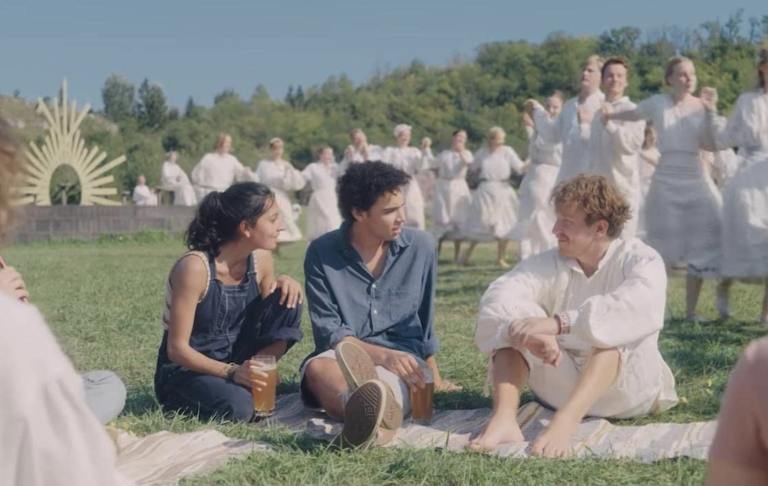
Let’s start with the weakest argument: in Midsommar the POC characters are all killed. Of course, the white visitors aside from Dani are also all killed, but there is a difference. Pelle brings the Americans to the Hårga for two reasons: breeding and sacrifices. Christian, Mark and Dani (white and blue-eyed) are chosen for breeding, though unlike Dani, Christian and Mark are killed afterwards and used as sacrifices.
2. The Hårga use runes associated with white supremacy
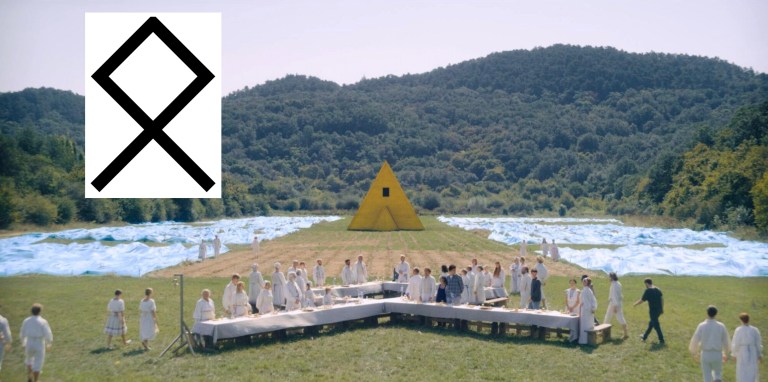
The cult uses several runes that are associated with white supremacy. Here, their table is arranged into the shape of an othala. This ruin has been used by Nazis and neo-Nazis to refer to the “Aryan race” and the goal of living in an isolated Aryan society. For instance, it can be seen on one of the flags of the National Socialist Movement, an American neo-Nazi group.
3. Hälsingland’s anti-immigration banner
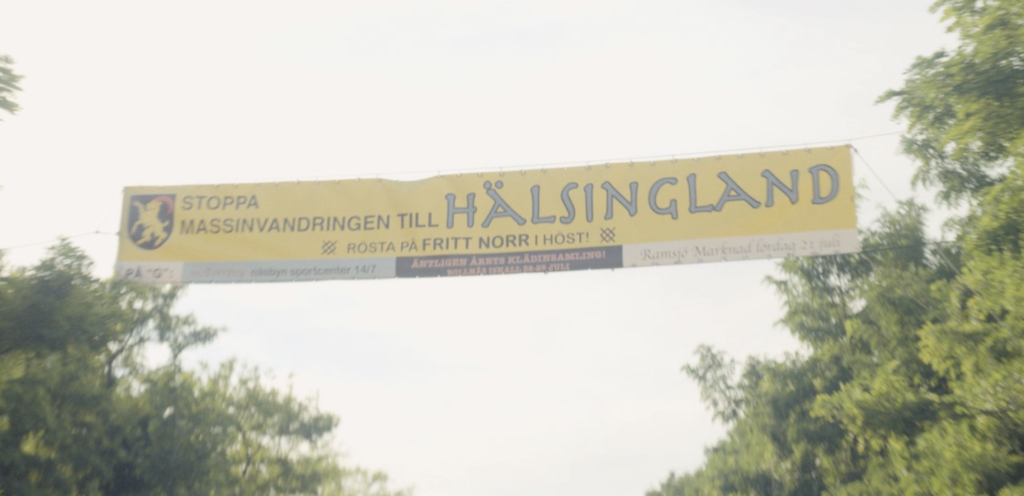
The Hårga live isolated in the rural Hälsingland province in Sweden. While traveling to the community, Dani and her friends pass under a banner encouraging anti-immigration sentiment among residents. The banner reads: “Stop mass-migration to HÄLSINGLAND. Vote for a Free North this fall.”
4. The Secret Nazi Language of the Uthark

When the boys are sitting in their New York apartment, there is a book on the coffee table called The Secret Nazi Language of the Uthark. As they are anthropology students preparing to visit the Hårga in Sweden, this book introduces the idea that there is a dark history to this region that might not be noticeable from the surface. “Uthark” refers to runes that originate from northern Europe, some of which have been appropriated by Nazis and neo-Nazis (like the odal/othala mentioned earlier).
The script calls for Dani to ask the group about the book and Josh makes a reference to Pelle, a member of the Hårga, knowing why it is relevant to their studies.

Josh also asks Pelle to comment on some Swedish people collaborating with Nazis during World War II:
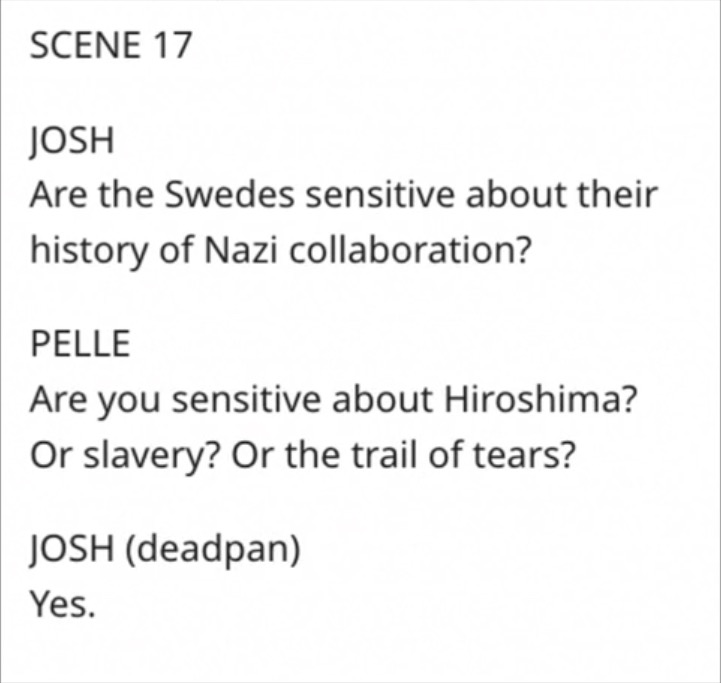
5. Ari Aster literally says the Hårga are racist
In a Daily News interview Aster said the Hårga are racist and will only recruit white people for mating. The non-white characters are only brought to Sweden to serve as sacrifices.
It’s just a scary time to be a human right now. So for instance, what Midsommar captures is the need for co-dependence. That’s one. I’ve used the village as a metaphor for codependency. But at the very the heart of it is tribalism. And I think tribalism, the more and more we see of it, can be really, really bad and dangerous.
Ari Aster, ‘Midsommar’ Director Ari Aster Dispels All The Theories Around His Horror Film
